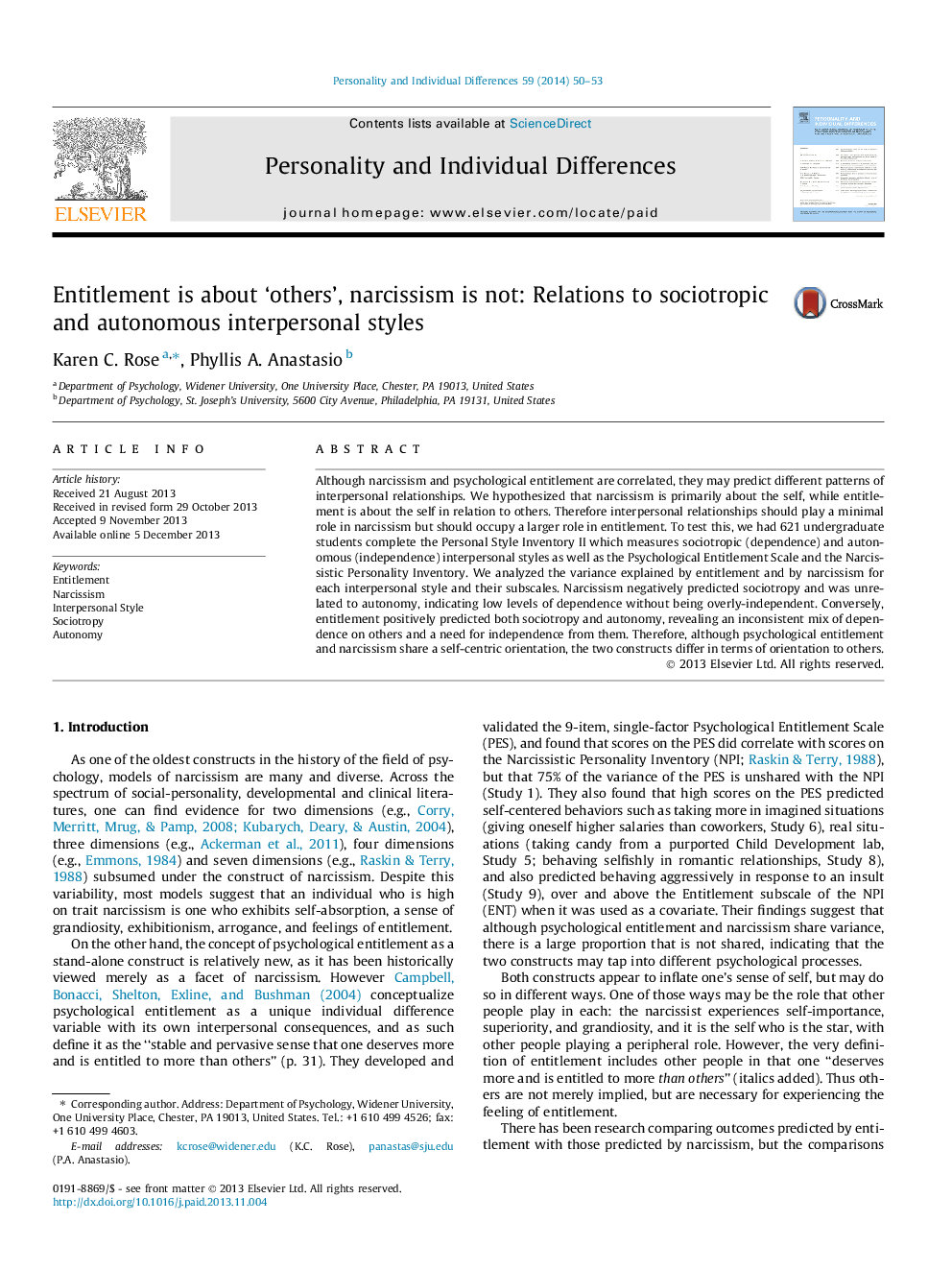| Article ID | Journal | Published Year | Pages | File Type |
|---|---|---|---|---|
| 890734 | Personality and Individual Differences | 2014 | 4 Pages |
•Narcissism and entitlement were compared on patterns of sociotropy and autonomy.•Sociotropy reflects a high need for ‘others’, whereas autonomy reflects the opposite.•Sociotropy was positively related to entitlement, and negatively related to narcissism.•Autonomy was positively related to entitlement, and was unrelated to narcissism.•Entitlement reflects a difficult mix of needs for dependence and independence.
Although narcissism and psychological entitlement are correlated, they may predict different patterns of interpersonal relationships. We hypothesized that narcissism is primarily about the self, while entitlement is about the self in relation to others. Therefore interpersonal relationships should play a minimal role in narcissism but should occupy a larger role in entitlement. To test this, we had 621 undergraduate students complete the Personal Style Inventory II which measures sociotropic (dependence) and autonomous (independence) interpersonal styles as well as the Psychological Entitlement Scale and the Narcissistic Personality Inventory. We analyzed the variance explained by entitlement and by narcissism for each interpersonal style and their subscales. Narcissism negatively predicted sociotropy and was unrelated to autonomy, indicating low levels of dependence without being overly-independent. Conversely, entitlement positively predicted both sociotropy and autonomy, revealing an inconsistent mix of dependence on others and a need for independence from them. Therefore, although psychological entitlement and narcissism share a self-centric orientation, the two constructs differ in terms of orientation to others.
